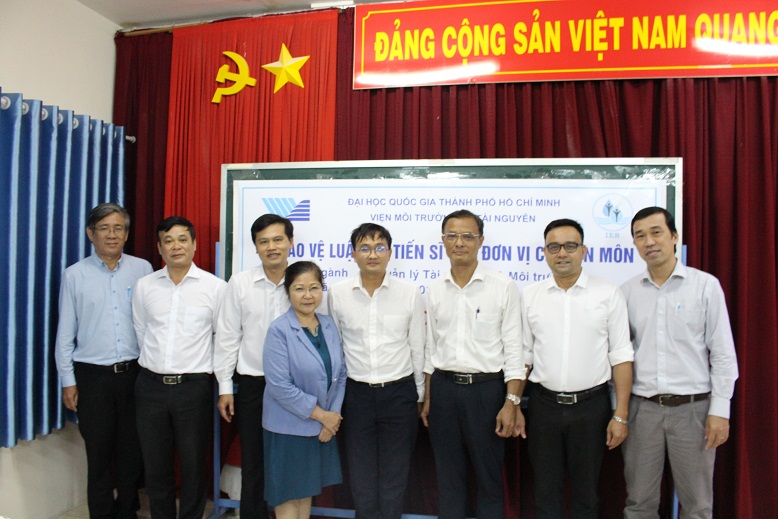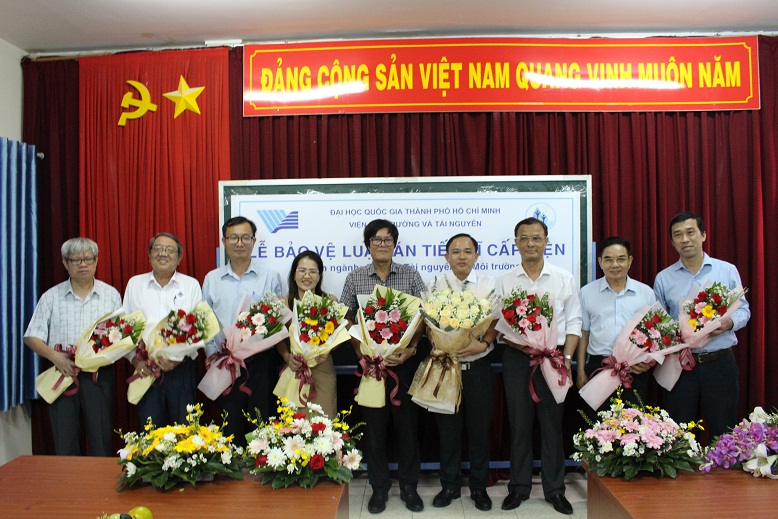Statistically examining the connection between dike development and human perceptions in Vietnamese Mekong Delta
Ngày 08/07/2022 Viện Môi Trường & Tài NguyênScience of The Total Environment, Volume 810, 1 March 2022, 152207 (SCIE, Q1, 10.753)
Authors: Tang Luu, Mark Verhallen, Dung DucTran, William B.Sea, Thanh Binh Nguyen, Hong Quan Nguyen
Research Article: Statistically examining the connection between dike development and human perceptions in the floodplains' socio-hydrology system of Vietnamese Mekong Delta
Science of The Total Environment, Volume 810, 1 March 2022, 152207 (SCIE, Q1, 10.753)
Authors: Tang Luu, Mark Verhallen, Dung DucTran, William B.Sea, Thanh Binh Nguyen, Hong Quan Nguyen
Highlights
- High-dike development versus its operation has been somewhat ad hoc in the VMD.
- Relations between dike development and human perceptions are statistically examined.
- Farmer perceptions are statistically significantly different under low and high dikes.
- A connection between dike development and human perception on flooding is suggested.
- Findings contribute materials to further develop socio-hydrology predictive models.
Abstract
Efforts on socio-hydrology science have been promoted to solve challenges faced by contemporary water management. This study aims to better understand the co-evolution of human-water systems in floodplains. Specifically, farmers' opinions on flooding, dike effects, and living conditions in different dike systems in the Vietnamese Mekong Delta floodplain are compared to explore possible connections between human perceptions and dike development processes by employing in-depth interviews of 7 officials and oral surveys of 100 farmers supported by a literature review. Local specific contexts have resulted in various dike systems. One mixed-low-dike-dominant, two mixed-high-dike-dominant, and one only-high-dike zones are found in the research area. High dikes have been operating in an ad hoc response to short-term demands in the mixed-dike zones while strictly following a provincial schedule in the only-high-dike zone. The Fisher-Freeman-Halton test was used to compare the farmers' opinions on diverse questions between the zones. Dike development processes are suggested to influence livelihood, transportation, perceived flood peak changes and perceived causes for declining fish stocks. Although it remains challenging to directly attribute these differences to the dike development processes themselves, a new interrelated dike-flood-livelihood feedback loop is proposed for floodplains. Insights obtained are expected to support decision makers formulating tailored climate change adaptation policies to the different socio-hydrological zones. Our findings also contribute to the current understanding of international scientific communities on the human-water system and provide materials to further develop socio-hydrological models that strengthen our predictive capability on how the complex system evolves in floodplains.
Keywords: Socio-hydrology, Floodplains, Human perceptions, Dike development, Vietnamese Mekong Delta

Thông tin chi tiết vui lòng xem tại:
Tang Luu, Mark Verhallen, Dung Duc Tran, William B. Sea, Thanh Binh Nguyen, Hong Quan Nguyen, Statistically examining the connection between dike development and human perceptions in the floodplains' socio-hydrology system of Vietnamese Mekong Delta, Science of The Total Environment, Volume 810, 2022, 152207, https://doi.org/10.1016/j.scitotenv.2021.152207.
(https://www.sciencedirect.com/science/article/pii/S0048969721072831)

.jpg)

.jpg)
.jpg)
.jpg)

(16).jpg)
.jpg)
.jpg)